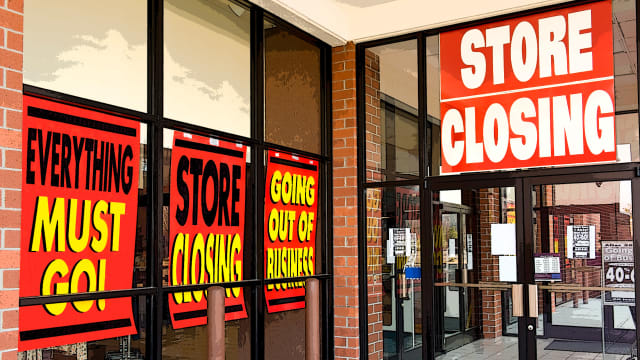
THREAD: alarming drop in consumer confidence
LifeLine™ Media threads use our sophisticated algorithms to construct a thread around any topic you want, providing you with a detailed timeline, analysis, and related articles.
News Timeline


RETAIL GIANT’S Shocking Bankruptcy Sends Chill Through US Economy
— A major American retailer with over 1,000 stores has filed for Chapter 11 bankruptcy. The company is drowning in more than $4 billion of debt and saw sales drop by 35% this year alone.
This move puts thousands of jobs on the line and leaves suppliers worried as the business tries to reorganize under court orders. Experts say the fallout could shake up the entire retail industry.
“This is a wake-up call for brick-and-mortar businesses struggling against online giants,” one analyst said. Soaring inflation and changing shopping habits have made it even harder for traditional retailers to survive.
The bankruptcy highlights bigger problems in our economy, as families face rising prices and fewer job options in retail — a field many once thought was safe and steady work.
US FACTORIES In PERIL: Shocking Slump Sparks Fear Across America
— America’s manufacturing sector is taking a hard hit. The latest numbers show the Purchasing Managers’ Index has dropped to 48.2. That’s below the line for growth and signals real trouble ahead. Factory orders have fallen for three months in a row, with new orders dropping 4.5% just in April.
Rising energy bills and supply chain messes are making life tough for manufacturers. Thousands of workers have lost their jobs in big industrial cities as companies warn profits could shrink even more if this keeps up.
Manufacturing stocks have taken a nosedive, dragging down the entire industrial market and shaking up investors across the country. Experts say if this slide continues, it could hurt jobs, slow down spending, and put America’s economy at risk.
With talk of a recession growing louder, everyone is watching to see what the Federal Reserve will do next about interest rates. Leaders are under pressure to make a move before things go from bad to worse.

US CREDIT DOWNGRADE Ignites Panic and Reckoning on Debt
— America just lost its “perfect” credit rating, and the fallout is hitting hard. Investors are rushing to gold, worried that markets could get even more unstable.
Experts warn that higher borrowing costs for the government could soon hurt families and small businesses. The downgrade is sparking fresh arguments over how Washington handles spending and debt.
This blow comes as Congress keeps fighting over how to manage the nation’s finances. Fixing the economy now looks even tougher with so much uncertainty in Washington.
NO SHOCKING Financial News Rocks Markets: Investors Relieved on May 17, 2025
— Conservative investors hoping for big headlines today can breathe easy. There are no new financial shocks or surprises for May 17, 2025. The news cycle remains calm, with no sudden market drops or major policy changes making waves.
Instead, the main stories still center on ongoing issues like the Russia-Ukraine conflict and U.S. ties in the Middle East. Some reports mention local ceasefires, but nothing has rattled Wall Street or Main Street today. No big IPOs or earnings shakeups have hit the wires either.
Japan’s decision to treat crypto assets as financial products stands out as a recent highlight from late March — not today. Inflation is cooling a bit, but worries about tariffs and global trade fights continue to linger over the markets’ future direction.
In short, it’s a steady day for finance with no fresh disruptions or breakthroughs reported. Smart investors should keep watching world events that could change things in the days ahead — but for now, all is quiet on Wall Street.;

FED’S Bold Move Stuns Wall Street: Trump’S Trade Fight Ignites Fear And Hope
— Wall Street took a wild ride after the FEDERAL RESERVE made its latest move and President Trump doubled down on tariffs. Investors were left uneasy. Goldman Sachs warned the S&P 500 could drop even more if trade fights get worse. UBS also lowered its forecast, showing growing worry about where things are headed.
The S&P 500’s longest winning streak in twenty years came to an end as traders feared new tariffs could hurt economic growth and profits. Some industries, like media and film, are especially nervous about possible tariffs on foreign movies, which has sparked debate over American jobs and creative freedom.
Treasury Secretary Scott Bessent tried to calm everyone down by saying Trump’s policies — tariffs, tax cuts, and cutting red tape — are meant to help America in the long run, even if things feel shaky now. The White House says these steps will make U.S. businesses stronger against unfair competition from other countries.
As markets react to these changes, people are split on whether tough trade rules will help or hurt in the end. Many conservatives believe Trump is finally standing up for American workers who have been ignored for too long by global deals that put them last.;
GOLDMAN SACHS Sounds Alarm: S&P 500 Faces Shock From Trump-ERA Trade Fight
— Goldman Sachs is warning that the recent jump in the S&P 500 may not last. The bank says new trade tensions under President Trump and signs of a weaker economy are big risks for investors.
Trump’s “Liberation Day” announcement has stirred up talk about more U.S.-China tariffs. Goldman Sachs questions if the market can keep rising if these trade fights heat up again.
TD Cowen now says there’s a 70% chance that Chinese stocks could be kicked off U.S. exchanges, thanks to ongoing pressure from Trump’s team. This adds even more worry for investors as trade rules keep changing fast.
These warnings show how quickly things can shift on Wall Street when leaders make bold moves and economic data sends mixed signals. Investors are watching closely to see if tariffs will cause real trouble — or if relief is on the way soon.
US MARKETS SHAKEN: GDP Slump and Trump’S Tough Trade Moves Rattle Investors
— Wall Street had a rocky day. The Dow Jones rose by 141 points, but the S&P 500 and Nasdaq barely moved. New data showed the US economy shrank for the first time in three years, and job growth was weaker than hoped. Many investors are watching President Trump’s trade tariffs as inflation reports come out and tech stocks struggle.
Visa stood strong with big profits and a $30 billion stock buyback plan. CEO Ryan McInerney said Visa’s business model is helping them stay steady in these tough times. But airlines and auto parts companies are still feeling the pain from tariffs.
Outside the US, Pakistan’s stock market crashed over fears of military conflict with India, which also hurt Indian markets. In Europe, the central bank raised interest rates even though banks are still shaky after problems at Credit Suisse.
Tech firms like Super Micro Computer reported less demand for AI equipment, while BlackRock invested more in blockchain technology. Experts say investors should be careful with risky stocks right now and look at safer options as global uncertainty grows.

US TRADE Policies Cause GLOBAL Economic Jitters
— Recent U.S. tariffs have left Canadian small businesses facing economic challenges, leading to job cuts and price hikes. The Canadian Federation of Independent Business reports nine percent of owners have issued layoff notices due to these tariffs. Businesses are raising prices by an average of 3.7 percent this month as they struggle with rising costs and decreased consumer spending.
In Alberta, business leaders feel cautiously optimistic after avoiding new U.S.-imposed tariffs that threatened the energy sector. Adam Legge from the Business Council of Alberta feels relieved but remains wary about future trade developments under current policies.
President Trump’s tariff strategy aims to equalize import taxes with those imposed by other nations, sparking debate over its economic impact on sectors like agriculture and manufacturing. Meanwhile, Japan’s Prime Minister Shigeru Ishiba expressed disappointment over Japan’s exclusion from tariff exemptions and plans support for affected industries domestically.
These developments highlight growing concerns about global economic instability driven by U.S. trade policies, particularly affecting small businesses worldwide as they navigate uncertain financial landscapes.

STOCK MARKET Chaos: US Faces Economic Fears as Tariffs Loom
— U.S. stocks took a nosedive today as President Donald Trump’s “Liberation Day” approaches, bringing potential tariffs on Canadian steel and aluminum imports. Analysts warn these tariffs could trigger a market downturn and increase recession risks. Wolfe Research has already revised U.S. growth estimates for 2025 down to 1.6%.
Retail giant Kohl’s experienced its worst trading day since 1992, with stocks tumbling by 26% after issuing disappointing guidance for the year. Investor anxiety is also heightened by an upcoming House vote on a stopgap funding bill, adding to market volatility.
The Dow Jones Industrial Average has fallen 8.3% from its peak, raising concerns about the tech sector’s performance compared to the S&P 500. Investors are bracing for further shifts as policy decisions unfold in the coming days amid fears of reduced earnings across sectors due to new tariffs and declining consumer confidence.

TRUMP’S Bold Move: How NEW Tariffs Rattle the Stock Market
— U.S. stocks fell sharply as President Donald Trump’s tariffs on Canada and Mexico took effect, sparking economic fears. Investors worry about the potential impact amid existing uncertainties. Analysts warn of a possible recession, urging caution in market activities.
The S&P 500 and Nasdaq composite saw major drops, hitting technology stocks hard. Companies across sectors are revising forecasts due to these new trade policies. Experts suggest these tariffs could worsen inflation and reduce consumer spending soon.
These tariffs are part of Trump’s broader trade agenda to boost U.S. manufacturing but risk retaliatory actions that may harm American businesses and consumers. The market remains bearish as analysts closely watch for policy fallout effects.

NEW DUTY Shock: Retail Prices to Skyrocket, Consumers Worried
— Retailers are raising concerns about a looming price surge. A new 25% duty on exports from Mexico and Canada is set to increase costs. This change could lead to higher prices for shoppers almost immediately.
The duty affects a wide range of goods, impacting everyday items. Retailers warn this could disrupt supply chains and limit product availability. Shoppers should brace for potential price hikes at local stores.
Efforts to ease these effects are underway, but challenges remain tough. Businesses might need new strategies to handle rising costs. The economic impact of this policy change deserves close attention from policymakers and the public alike.
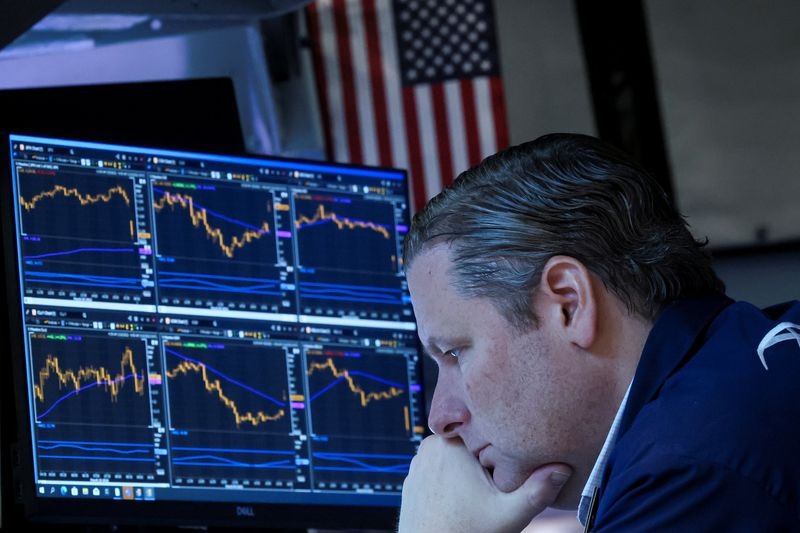
STOCK MARKET Chaos: Inflation Fears Shake Investor Confidence
— The U.S. STOCK market took a big hit today, with major indexes dropping over 3% due to rising inflation fears. Investors worry about possible Federal Reserve policy changes after high inflation numbers came out earlier this week. This is one of the steepest drops in months, shaking confidence that had been boosted by strong job reports.
Bond yields are up, with the 10-year Treasury bond yield hitting about 4.1%, its highest since late 2023, signaling increased inflation expectations. Big tech stocks like Apple and Microsoft saw sell-offs over 5%, adding to the market slump. Analysts warn that ongoing inflation might push the Federal Reserve to rethink interest rate policies, possibly leading to more hikes instead of cuts.
The decline comes after a strong holiday shopping season that initially suggested steady economic growth but is now overshadowed by ongoing inflation problems. Retail and consumer sectors face rising costs and reduced spending, making investors cautious in these areas. Companies like Walmart and Target report higher holiday sales but shrinking profit margins due to inflation pressures, prompting them to rethink annual forecasts.
Banks like JPMorgan are bracing for possible loan defaults as consumers struggle with higher living costs by setting aside more reserves. Market analysts expect continued volatility as investors digest new inflation data and Fed policy implications.;

WALL STREET Surges: Oil Price Drop Sparks Investor Optimism
— Wall Street is climbing today, driven by a 6% DROP in oil prices. Investors are gearing up for a crucial week of earnings reports from major tech firms.
Tech and energy stocks are leading the way, with analysts hopeful about tech giants’ futures. However, there is still caution about the overall economic outlook.
The fall in oil prices comes from oversupply worries and easing geopolitical tensions, affecting inflation rates and consumer spending that Wall Street closely monitors.
While U.S. markets rise, Asian markets face recession fears linked to U.S. economic performance, showing global interconnectedness and financial volatility.

— Dow Drops 300 Points as Rate Concerns Weigh on Post-Election Rally The Dow Jones Industrial Average fell 300 points on Friday, stifling momentum from the recent election amid ongoing worries about rising interest rates

— S&P 500 RISES NEARLY 1% as Cooler Oil Prices Boost Market The Dow gained 100 points, reflecting positive investor sentiment amid declining oil prices

— S&P 500 SOARS to NEW RECORD CLOSE The index surged as traders sought to capitalize on the momentum from recent Federal Reserve interest rate cuts

— Business Leaders Optimistic for Trump Victory Despite Current Polls: C-Suite Advisor Warns of Denial Trend Among CEOs

— Dow Jones Slides Over 100 Points Amid Economic Concerns in June Trading The Dow Jones Industrial Average dips over 100 points in the first trading session of June, with investor sentiment impacted by ongoing economic uncertainties
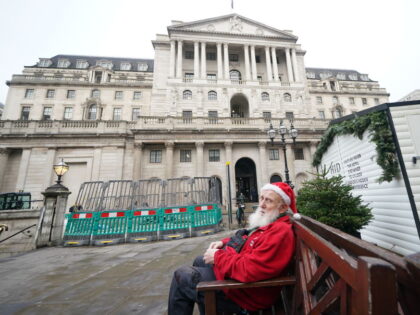
UK INFLATION TUMBLES to 39%: Central Bank May Slash Rates Sooner Than Predicted
— The Office for National Statistics (ONS) recently announced a surprising drop in UK inflation to 3.9% in November, a decrease from the previous month’s 4.6%. This dip, larger than what financial markets had forecasted, marks the lowest inflation level since September 2021.
This decline is primarily attributed to falling fuel and food prices according to the ONS. However, despite this optimistic news, the Bank of England’s primary interest rate remains at a staggering high of 5.25%, not seen for over a decade and a half.
Governor Andrew Bailey hinted that this stringent interest rate policy might continue for some time. Yet Samuel Tombs, chief U.K economist at Pantheon Macroeconomics suggests an alternative view — that this sharp fall in inflation could trigger an earlier-than-expected cut in interest rates; perhaps as early as the first half of next year.
While elevated interest rates initially helped curb inflation sparked by supply chain disruptions and Russia’s invasion of Ukraine, they have also put pressure on consumer spending and slowed economic growth. As such there are growing worries that maintaining high rates could inflict unnecessary damage on the economy.

Video
GLOBAL ELECTIONS Shock: What’s at Stake for Iran, Britain, and France
— Over the next week, voters in countries like Iran, Britain, and France will head to the polls. These elections come at a critical time with global tensions high and public concerns over jobs, climate change, and inflation.
In Iran, Supreme Leader Ayatollah Ali Khamenei seeks a successor for President Ebrahim Raisi following his recent death. Candidates include hard-liners Saeed Jalili and Mohammad Bagher Qalibaf as well as reformist Masoud Pezeshkian.
These elections could significantly impact global politics amid ongoing wars in Europe, the Middle East, and Africa. The outcomes may reorient international relations during this period of mutual suspicion among major powers.




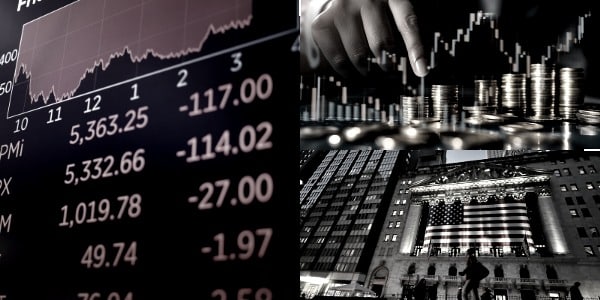

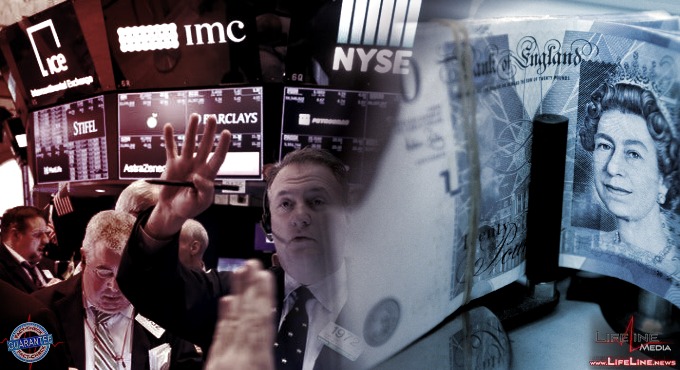
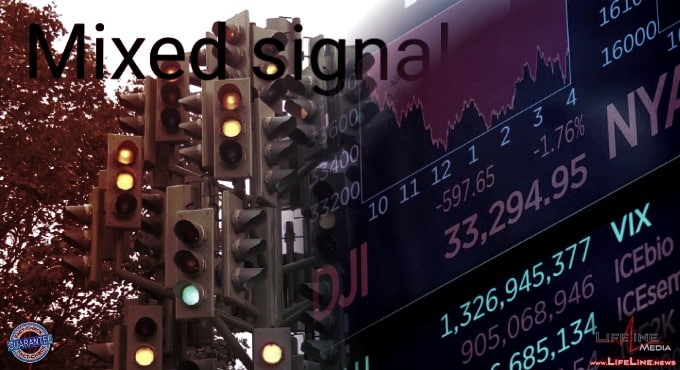


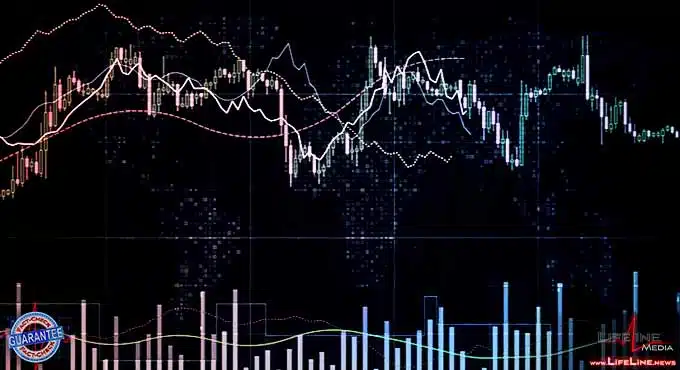
Social Chatter
What the World is Sayingwww.cnbc.com/2023/01/16/as-china-reopens-and-data-surpris... As China reopens and data surprises, economists are starting to get less gloomy ▫️ Barclays on Friday raised its global growth forecast to 2.2% in 2023, up 0.5 percentage points from its last estimate in mid-November. ▫️ Berenberg also ...
. . .www.cnbc.com/2023/01/16/as-china-reopens-and-data-surpris... As China reopens and data surprises, economists are starting to get less gloomy ▫️ Barclays on Friday raised its global growth forecast to 2.2% in 2023, up 0.5 percentage points from its last estimate in mid-November. ▫️ Berenberg also ...
. . .www.cnbc.com/2023/01/16/as-china-reopens-and-data-surpris... As China reopens and data surprises, economists are starting to get less gloomy ▫️ Barclays on Friday raised its global growth forecast to 2.2% in 2023, up 0.5 percentage points from its last estimate in mid-November. ▫️ Berenberg also ...
. . .www.cnbc.com/2023/01/16/as-china-reopens-and-data-surpris... As China reopens and data surprises, economists are starting to get less gloomy ▫️ Barclays on Friday raised its global growth forecast to 2.2% in 2023, up 0.5 percentage points from its last estimate in mid-November. ▫️ Berenberg also ...
. . .www.cnbc.com/2023/01/16/as-china-reopens-and-data-surpris... As China reopens and data surprises, economists are starting to get less gloomy ▫️ Barclays on Friday raised its global growth forecast to 2.2% in 2023, up 0.5 percentage points from its last estimate in mid-November. ▫️ Berenberg also ...
. . .